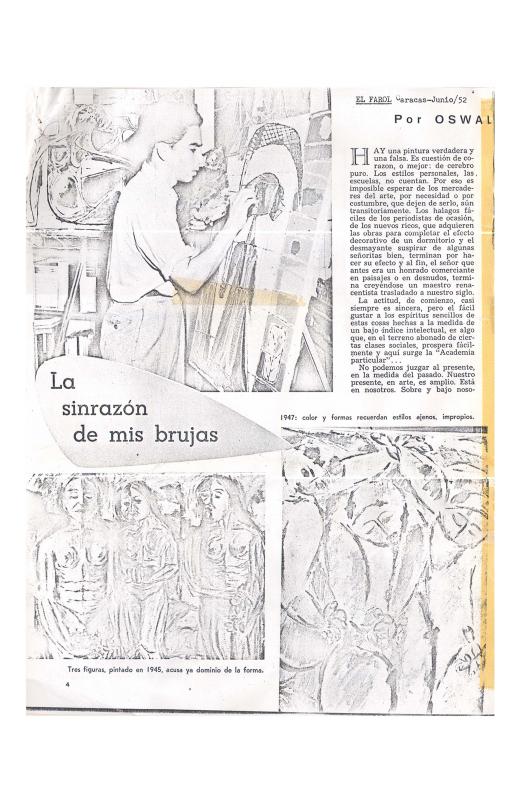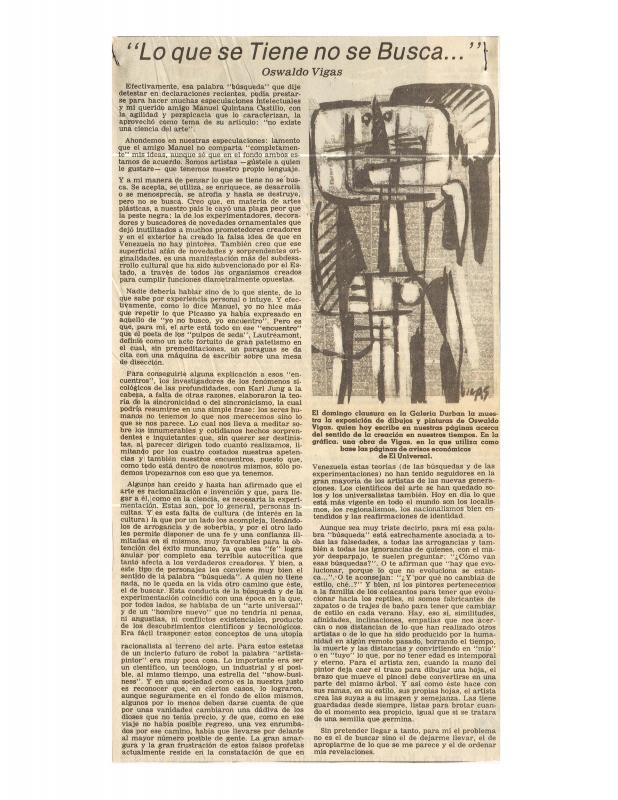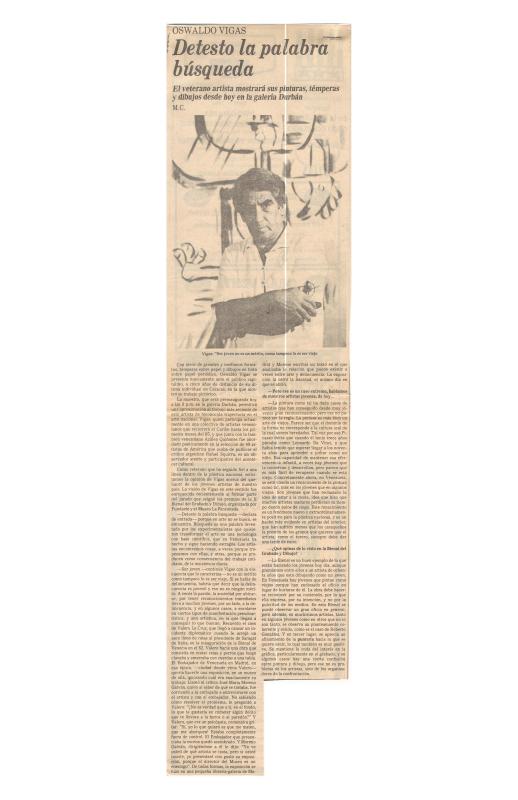The statements that Venezuelan painter Oswaldo Vigas (b. 1926) made in this interview by Paco Benmaman led to controversy in the Venezuelan art milieu. Indeed, for over a month after this interview was published, rebuttals were voiced by artists and critics like Perán Erminy, Jesús Rafael Soto, Omar Carreño, J.R. Guillent Pérez, Mateo Manaure, Juan Nuño, and Carlos Celis Cepero, who countered Vigas’s views of Los Disidentes, of foreign influence on local art, of Carlos Raúl Villanueva’s architecture, of abstract art, and of Kinetic art. As part of the debate, Roberto Montero Castro published an article that, to some extent, defended Vigas’s position. In this interview, then, Viga opened a discussion on the validity of foreign tendencies and technologies in art at a moment when the influence of those tendencies and technologies had peaked in Kinetic art, for instance, which was widely accused of being a “government-backed and establishment tendency.” In terms of that last point, the relationship between art and politics is important to the articulation of imaginaries and discourses tied to Venezuela’s progress and future and to its role in the continent’s economy. In the interview, Vigas posits a genealogy of his position by claiming that the transculturation of Venezuelan art began with the formulations of Los Disidentes (1950) and continued with the Ciudad Universitaria de Caracas project (1952-53). Vigas’s position on Venezuelan art reflects his concerns with the notion of Venezuelan and Latin American “identity.” Indeed, those concerns had become more central to the work he produced in the seventies, when this interview took place, as he searched for a language specific to the region and reformulated its past. The supposedly universal nature of an international tendency like abstract art was, in Vigas’s view, groundless insofar as he believed that universality depended on the insertion of “local” references in international art. For texts by Vigas himself on emerging art in Venezuela, see “La sin razón de mis brujas” (doc. no. 1153349) and “Lo que se tiene no se busca” (doc. no. 1152785). See as well the interview by M.C. entitled “Detesto la palabra búsqueda: Oswaldo Vigas” (doc. no. 1152801).



